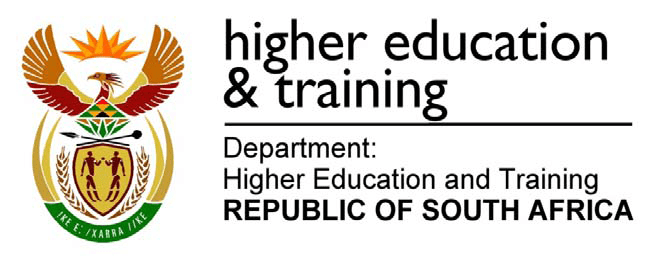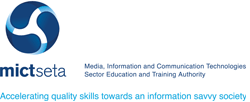THINK EMPLOYMENT!
Mathematics in Public Administration
US117925, US116931, US11539
US117925, US116931, US11539
This course assumes little or no knowledge as it is basic however, it would be beneficial to have a general understanding of personal computers and the operating system environment, especially regarding working with files and folders.
This Unit Standard is designed to provide credits towards the mathematical literacy requirement of the NQF at Level 4. The essential purposes of the mathematical literacy requirement are that, as the learner progresses with confidence through the levels, the learner will grow in: A confident, insightful use of mathematics in the management of the needs of everyday living to become a self-managing person An understanding of mathematical applications that provides insight into the learner`s present and future occupational experiences `and so develop into a contributing worker The ability to voice a critical sensitivity to the role of mathematics in a democratic society and so become a participating citizen. People credited with this unit standard are able to: Critique and use techniques for collecting, organising and representing data. Use theoretical and experimental probability to develop models, make predictions and study problems. Critically interrogate and use probability and statistical models in problem solving and decision making in real-world situations.
This unit standard will be useful to people who aim to achieve recognition at some level in Further Education and Training or to meet the Fundamental requirement of a wide range of qualifications registered on the National Qualifications Framework. People credited with this unit standard are able to: Use mathematics to plan and control financial instruments including insurance and assurance, unit trusts, stock exchange dealings, options, futures and bonds Use simple and compound interest to make sense of and define a variety of situations including mortgage loans, hire purchase, present values, annuities and sinking funds Investigate various aspects of costs and revenue including marginal costs, marginal revenue and optimisation of profit Use mathematics to debate aspects of the national and global economy, including tax, productivity and the equitable distribution of resources.
This unit standard is designed to provide credits towards the mathematical literacy requirements of the NQF at level 4. The essential purposes of the mathematical literacy requirements are that, as the learner progresses with confidence through the levels, the learner will grow in: An insightful use of mathematics in the management of the needs of everyday living to become a self-managing person. An understanding of mathematical applications that provides insight into the learner`s present and future occupational experiences and so develop into a contributing worker. The ability to voice a critical sensitivity to the role of mathematics in a democratic society and so become a participating citizen. People credited with this unit standard are able to: Measure, estimate, and calculate physical quantities in practical situations relevant to the adult with increasing responsibilities in life or the workplace. Explore analyse and critique, describe and represent, interpret and justify geometrical relationships and conjectures to solve problems in two- and three-dimensional geometrical situations
System Software Programming Software Application Software Operating system
Explain legal, ethical and organisational issues in relation to the use of email Manage email messages Use the address book facilities of an electronic mail application
Send and receive messages



